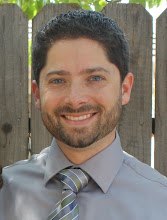The other show I watch fairly frequently is 'House' - though often the morality portrayed on this medical drama is questionable and should be viewed carefully. My interest with this show, however, is far more myopic; unlike '24' there aren't a number of reasons I find myself drawn to it. There's really only one: I think Dr. Gregory House's character, played wonderfully well by Hugh Laurie, is one of, if not the most interesting on television, and the other characters are great foils. In many ways, he is like a child that never grew up. In other ways, he is jaded beyond belief. I find his view of people, ethics, science, and God to be fascinating and instructive for me as I apply worldview analysis to his character.
For instance, last night's episode ended differently than all the others. Every time, House and his team have a last minute epiphany and diagnose the mysteriously (and ususally terminally) ill patient just in the nick of time. Not so last night. The patient died - died, in fact, directly as a result of a mistaken diagnosis and treatment by both House and Dr. Foreman that proved to be fatal. As Foreman was dealing with the guilt, he received the following advice from House: it doesn't matter how you feel. The numbers say that, though this kind of thing happens much more frequently to doctors in their line of work, they save many more lives and much more difficult cases than most other doctors, and the numbers don't lie. The guilty feeling is meaningless, because it is rooted in subjective emotion, and should be ignored.
As often is the case, though, House's quite inhuman comments collide headlong with his own very human actions. One of the subplots involved his best friend, his best friend's ex-wife, and their dog who lived with her but who wouldn't stop misbehaving since the ex-husband left. House had manipulated her for information, and then at the end of the show, after just having given Foreman this pep-talk on the illusory nature of guilt, ended up taking the dog in himself out of guilt. House's callous philosophical stance was undermined by his own undeniable humanity. He can espouse the outworkings of his presuppositions, but at key points in his humanity, he cannot live with them. This is the tension Francis Schaeffer spoke and wrote so often about:
...in fact, no non-Christian can be consistent to the logic of his presuppositions. The reason for this is simply that a man must live in reality and reality consists of two parts: the external world and its form, and man's 'mannishness', inclusing his own 'mannishness'. No matter what a man may believe, he cannot change the reality of what is...
...every man is in a place of tension. Man cannot make his own universe and then live in it...
...every man is somewhere along the line between the real world and the logical conclusion of his non-Christian presuppositions. Every person feels the pull of two consistencies, the pull towards the real world and the pull towards the logic of his system. He may let the pendulum swing back and forth between them, but he cannot live in both places at once. He will be living nearer to the one or to the other, depending on the strenght of the pull at any given time. To have to choose bewteen one consistency or the other is a real damnation for man.

1 comment:
Yo, long time dude. CRAZY END OF SEMESTER! My wife keeps trying to get me to watch House and I stray because I just don't like medical stuff. At all. But the small snippets I've seen have been great (specifically Hugh Laurie).
Don't always agree with ya, but I appreciate your thoughful process on moral issues of the world. Keep it up. :)
Post a Comment